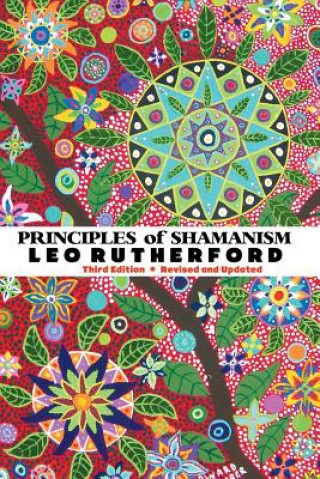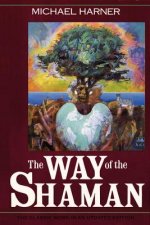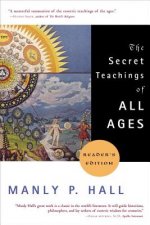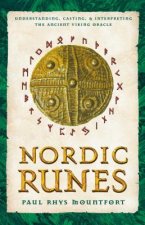
Code: 08857307
Principles of Shamanism
by Leo Rutherford
PRINCIPLES OF SHAMANISM by LEO RUTHERFORD REVISED AND UPDATED, WITH NEW ILLUSTRATIONS This updated edition of Principles of Shamanism (a.k.a. Shamanism Today) offers an introd ... more
- Language:
 English
English - Binding: Paperback
- Number of pages: 208
Publisher: Crescent Moon Publishing, 2014
- More about this

You might also like
-

Sacred Forest Oracle
90.57 zł -13 % -

Moon Spells
47.56 zł -23 % -

The Way of the Shaman
68.61 zł -12 % -

101 Asian Dishes You Need to Cook Before You Die
90.57 zł -13 % -

Quintessential Quintuplets Part 1 Manga Box Set
289.04 zł -13 % -

Those Who Leave and Those Who Stay
49.18 zł -14 % -

10 Minutes A Day Phonics, Ages 3-5 (Preschool)
29.34 zł -23 % -

Useless Magic
86.52 zł -14 % -

Cave and Cosmos
81.36 zł -10 % -

Say What You Mean
68.51 zł -12 % -

World's Religions
81.56 zł -10 % -

Kanban
218.19 zł -5 % -

The Druid Plant Oracle: Working with the Magical Flora of the Druid Tradition
120.43 zł -7 % -

Jaws
130.75 zł -

Make Your Own Neural Network
230.03 zł -

Book of the Cat
73.26 zł -7 % -

Bonjour Tristesse and A Certain Smile
43.10 zł -23 % -

Maisy Goes to Preschool
37.74 zł -5 % -

Man In the Music
73.77 zł -11 % -

FunRetrospectives: activities and ideas for making agile retrospectives more engaging
95.93 zł -

The Fellowship of the River: A Medical Doctor's Exploration into Traditional Amazonian Plant Medicine
99.88 zł
Give this book as a present today
- Order book and choose Gift Order.
- We will send you book gift voucher at once. You can give it out to anyone.
- Book will be send to donee, nothing more to care about.
More about Principles of Shamanism
You get 50 loyalty points
 Book synopsis
Book synopsis
PRINCIPLES OF SHAMANISM by LEO RUTHERFORD REVISED AND UPDATED, WITH NEW ILLUSTRATIONS This updated edition of Principles of Shamanism (a.k.a. Shamanism Today) offers an introduction to shamanism, the oldest spiritual path of them all (at least 50,000 years). Shamanism is the oldest way in which humanity has sought connection with Creation. The origins of shamanism go back at least 40,000-50,000 years to Stone Age times. All of us have evolved from shamanic cultures, shamanism is not imported, it is our roots wherever we live. Anthropologists have studied shamanism in North, Central and South America, Africa, amongst the aboriginal people of Australasia, the Eskimo and Lapps of the far North, in Indonesia, Malaysia, Senegal, Patagonia, Siberia, Bali, Ancient Britain and across Europe, in Tibet where the path of Bon shamanism underlies Tibetan Buddhism - in places all over the world. Leo Rutherford has learned from Inca and Shipibo of Peru, Lakota, Cherokee, Pueblo, Hopi and Ojibway of North America, and from apprentices of the Huichols of Mexico. All over the world there is evidence of shamanic practices from as far back as the palaeolithic period. From ancient cave drawings and similar records it seems that all indigenous peoples shared a similar cosmology, a similar understanding of how the universe works. Today shamanism survives on all inhabited continents in less 'developed' regions in spite of the relentless onslaught of Western scientific materialism, the treatment of the Earth and nature as something to be dominated and exploited, and dogmatic male-dominated religion. Now, as the unsustainable nature of Western civilization is becoming visible, more and more people of the industrial world are turning to the old cultures for help and guidance in finding a way back to a greater balance with nature, with Planet Earth, and with themselves. Shamanism is not a belief system. It is a path to knowledge which is gained through experience of many facets of life, through rituals, ceremonies, prayer and meditation, trials and tests. Knowledge is something that works, that stands up to tests and to the test of time, that is known from inside, unlike belief which is something taken on from outside, from others. Wars are fought over beliefs, dogma and doctrine, not over knowledge. Leo Rutherford is a trained psychotherapist with an M.A. in Holistic Psychology. He has studied with many shamanic teachers including Black Elk, and particularly Inca shaman Don Eduardo Calderon. He runs the Eagle's Wing Centre for Contemporary Shamanism in Sussex, England, which features many workshops associated with shamanism, including trance dance (www.eagleswing.co.uk). Fully illustrated. Third edition. Resources and notes. 208pp. ISBN 9781861714831. www.crmoon.com
 Book details
Book details
Book category Books in English Health & personal development Mind, Body, Spirit Mysticism, magic & ritual
86.22 zł
- Full title: Principles of Shamanism
- Author: Leo Rutherford
- Language:
 English
English - Binding: Paperback
- Number of pages: 208
- EAN: 9781861714831
- ISBN: 9781861714831
- ID: 08857307
- Publisher: Crescent Moon Publishing
- Weight: 334 g
- Dimensions: 158 × 234 × 15 mm
- Date of publishing: 21. April 2014
Trending among others
-

Mystical Shaman Oracle Cards
156.76 zł -10 % -

The Wild Unknown Archetypes Deck and Guidebook
153.12 zł -13 % -

The Witch's Book of Self-Care
61.52 zł -23 % -

Alchemy & Mysticism
104.84 zł -7 % -

The House Witch
61.52 zł -23 % -

Devil's Notebook
48.77 zł -6 % -

Beltane
57.58 zł -7 % -

Year of the Witch
65.37 zł -6 % -

Brief Tour of Higher Consciousness
56.56 zł -7 % -

Incense Magick
81.87 zł -5 % -

Message for the Tribe of Many Colors
123.26 zł -

Elixir of Immortality
83.99 zł -

Magician's Kabbalah
71.54 zł -

True Magic
65.37 zł -6 % -

Earth Magic Oracle Cards
92.80 zł -10 % -

Kabbalah, Magic and the Great Work of Self-transformation
124.48 zł -6 % -

Arbatel
144.21 zł -6 % -

Runes Oracle Cards
87.23 zł -

Moonchild
92.80 zł -7 % -

Book of the Law
72.25 zł -7 % -

Modern Magick
152.10 zł -6 % -

Hands-on Chaos Magic
96.95 zł -6 % -

Emerald Tablet of Hermes
36.02 zł -

Transcendental Magic
88.85 zł -

The Secret Teachings of All Ages
105.55 zł -12 % -

Heroes
52.21 zł -23 % -

The Golden Dawn
262.32 zł -6 % -

Splendor Solis
133.99 zł -11 % -

Tarot of the Sidhe
104.64 zł -7 % -

Nordic Runes
73.97 zł -5 % -

Awakening to the Spirit World
81.36 zł -10 % -

Modern Witchcraft Spell Book
70.23 zł -10 % -

Element Encyclopedia of 5000 Spells
150.18 zł -37 % -

Book of Black Magic and Ceremonial Magic
113.85 zł -5 % -

Practical Guide to the Runes
41.89 zł -6 % -

Keeping Her Keys
73.26 zł -15 % -

The Elemental Oracle
97.76 zł -13 % -

Herbal Alchemist's Handbook
80.15 zł -7 % -

Grow a New Body
70.73 zł -23 % -

Yule
57.98 zł -5 % -

Ancient Secret of the Flower of Life
106.26 zł -4 % -

Kabbala
138.34 zł -

Sigil Witchery
85.21 zł -6 % -

Satanic Witch 2ed
57.58 zł -7 % -

Wicca
73.26 zł -7 % -

777 & Other Qabalistic Wrtings
123.46 zł -7 % -

Llewellyn's Complete Book of Correspondences
169.31 zł -3 % -

Magical Times Empowerment Cards
88.95 zł -9 % -

Llewellyn's Complete Book of Ceremonial Magick
163.84 zł -6 %
safisfied customers
Since 2008, we have served long line of book lovers, but each of them was always on the first place.
Copyright! ©2008-24 libristo.pl All rights reservedPrivacyPoučení o cookies



 21 million books
21 million books Delivery 12.99 zł
Delivery 12.99 zł (32) 444 93 66 (8-15.30h)
(32) 444 93 66 (8-15.30h)